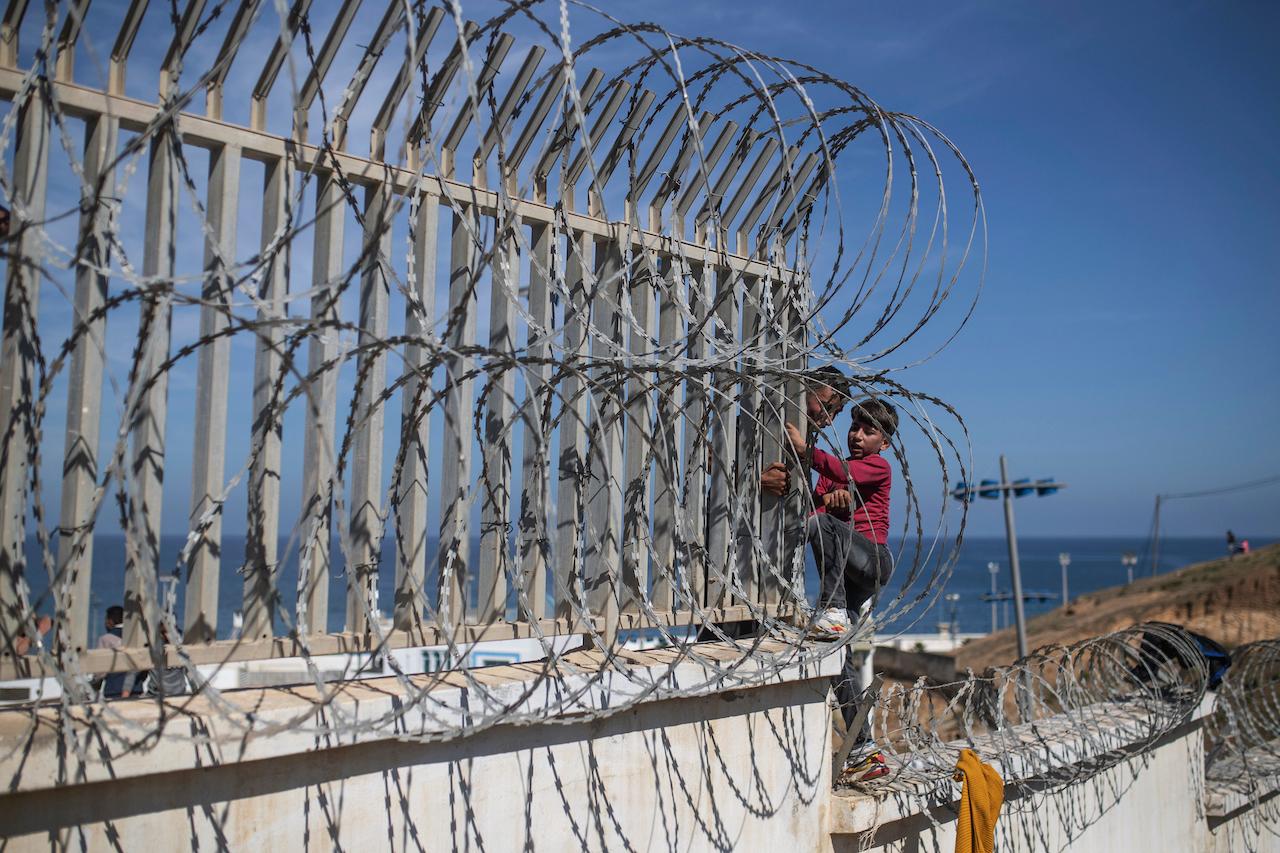Spanish troops repel 8,000 Moroccans swarming Spain’s African city
Spanish media said Moroccan border guards stood by and watched as migrants tried to get into the enclave.
Just In
Spain deployed its military to the Moroccan border on Tuesday as thousands of migrants scaled fences or swam onto European soil in Africa for the second day in a row after Rabat loosened border controls amid a deepening diplomatic spat.
The row between Rabat and Madrid over the disputed Western Sahara region has created a humanitarian crisis for Ceuta, the Spanish city of 85,000 in North Africa on the Mediterranean Sea, separated from Morocco only by a high security fence which at the start of the week young Moroccans scaled in their hundreds and jumped down into Europe.
Spanish Prime Minister Pedro Sanchez cancelled a trip to Paris, where he was to attend a summit on international aid to Africa and visited Ceuta instead.
While calling Morocco a “friend of Spain”, Sanchez urged authorities to “respect the shared border”. This worsened diplomatic tensions and Morocco withdrew its ambassador for consultations after Spain’s foreign minister told the envoy of her “disgust” at what had happened.
Spanish media said Moroccan border guards stood by and watched as migrants tried to get into the enclave.
Morocco’s new relaxed border enforcement came after Spain decided to grant entry for medical treatment to the chief of a militant group fighting Morocco for the independence of Western Sahara, which Morocco annexed in 1975.
The Rabat foreign ministry has said Madrid’s move to assist Brahim Ghali, head of the Polisario Front, was “inconsistent with the spirit of partnership and good neighbourliness” and vowed there would be “consequences”.
By Tuesday morning, at least 8,000 had crossed the border into Ceuta. The number getting in slowed but didn’t stop on Tuesday even as Spain deployed additional police and soldiers to the border.
Morocco and Spain signed an agreement three decades ago to expel all those who swim across the border and nearly 3,000 swimmers were returned to Morocco, according to Spain’s Interior Ministry.
Many arriving on Tuesday were sub-Saharan Africans and Spain has agreements to return some of those migrants to their native countries but not all.
By Tuesday afternoon, Moroccan authorities closed the road leading to Ceuta and anti-riot police dispersed crowds of would-be migrants.
Juan Jesus Vivas, the president of Ceuta told Cadena SER radio, “The army is at the border in a deterrent role, but there are great quantities of people on the Moroccan side waiting to enter.”
Arriving adults were being transferred to Ceuta’s main football stadium as they waited to be returned to Morocco while those thought to be minors were sent to warehouses run by charity groups.
The EU’s top migration official Ylva Johansson called on Morocco to prevent people setting out in the first place. “Spanish borders are European borders,” she said.
Over the decades, Spain has built a close relationship with Morocco to crack down on illegal border crossings but also to increase economic exchanges and fight extremism.
Many African migrants regard Ceuta and nearby Melilla, another Spanish territory, as a gateway into Europe.
Since the 17th century both enclaves have been under Spanish rule, though they are long claimed by Morocco.
Subscribe to our newsletter
To be updated with all the latest news and analyses daily.
